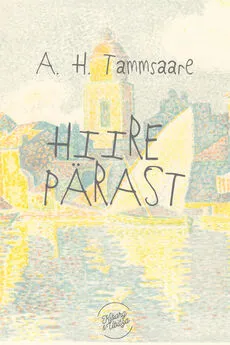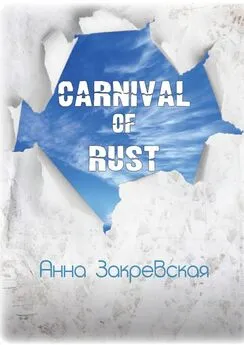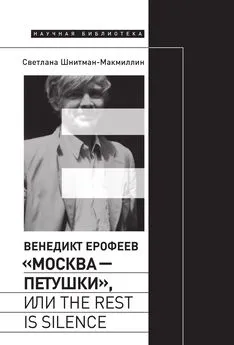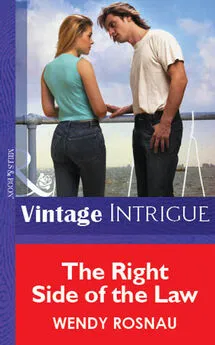W. Ainsworth - Rookwood
- Название:Rookwood
- Автор:
- Жанр:
- Издательство:неизвестно
- Год:неизвестен
- ISBN:нет данных
- Рейтинг:
- Избранное:Добавить в избранное
-
Отзывы:
-
Ваша оценка:
W. Ainsworth - Rookwood краткое содержание
Rookwood - читать онлайн бесплатно полную версию (весь текст целиком)
Интервал:
Закладка:
"And who was he, may I ask?" said Coates.
"Claude Du-Val," replied Jack; "and though a Frenchman, he was a deuced fine fellow in his way—quite a tip-top macaroni—he could skip and twirl like a figurant, warble like an opera singer, and play the flageolet better than any man of his day—he always carried a flute in his pocket, along with his snappers. And then his dress—it was quite beautiful to see how smartly he was rigg'd out, all velvet and lace; and even with his vizard on his face, the ladies used to cry out to see him. Then he took a purse with the air and grace of a receiver-general. All the women adored him—and that, bless their pretty faces, was the best proof of his gentility. I wish he'd not been a Mounseer. The women never mistake. They can always discover the true gentleman, and they were all of every degree, from the countess to the kitchen-maid, over head and ears in love with him."
"But he was taken, I suppose?" asked Coates.
"Ay," responded Jack, "the women were his undoing as they've been many a brave fellow's before, and will be again." Touched by which reflection, Jack became for once in his life sentimental, and sighed. "Poor Du-Val! he was seized at the Hole-in-the-Wall in Chandos Street by the bailiff of Westminster when dead drunk, his liquor having been drugged by his dells—and was shortly afterwards hanged at Tyburn."
"It was a thousand pities," said Mr. Coates, with a sneer, "that so fine a gentleman should come to so ignominious an end!"
"Quite the contrary," returned Jack. "As his biographer, Doctor Pope, properly remarks, 'Who is there worthy of the name of man, that would not prefer such a death before a mean, solitary, inglorious life?' By-the-by, Titus, as we're upon the subject, if you like I'll sing you a song about highwaymen?"
"I should like it of all things," replied Titus, who entertained a very favourable opinion of Jack's vocal powers, and was by no means an indifferent performer; "only let it be in a minor key."
Jack required no further encouragement, but, disregarding the hints and looks of Coates, sang with much unction the following ballad to a good old tune, then very popular—the merit of which "nobody can deny."
A CHAPTER OF HIGHWAYMEN
Of every rascal of every kind,
The most notorious to my mind,
Was the Cavalier Captain, gay JEMMY HIND! 1
Which nobody can deny.
But the pleasantest coxcomb among them all
For lute, coranto, and madrigal,
Was the galliard Frenchman, CLAUDE DU-VAL! 2
Which nobody can deny.
And Tobygloak never a coach could rob,
Could lighten a pocket, or empty a fob,
With a neater hand than old mob, OLD MOB! 3
Which nobody can deny.
Nor did housebreaker ever harder deal knocks
On the stubborn lid of a good strong box,
Than that prince of good fellows, TOM COX, TOM COX! 4
Which nobody can deny.
A blither fellow on broad highway,
Did never with oath bid traveller stay,
Than devil-may-care WILL HALLOWAY! 5
Which nobody can deny.
And in roguery nought could exceed the tricks
Of GETTINGS and GREY, and the five or six,
Who trod in the steps of bold NEDDY WICKS! 6
Which nobody can deny.
Nor could any so handily break a lock
As SHEPPARD, who stood on the Newgate dock,
And nicknamed the gaolers around him "his flock"! 7
Which nobody can deny.
Nor did highwayman ever before possess,
For ease, for security, danger, distress,
Such a mare as DICK TURPIN'S Black Bess! Black Bess!
Which nobody can deny.
"A capital song by the powers!" cried Titus, as Jack's ditty came to a close. "But your English robbers are nothing at all, compared with our Tories 8and Rapparees—nothing at all. They were the raal gentlemen—they were the boys to cut a throat asily ."
"Pshaw!" exclaimed Jack, in disgust, "the gentlemen I speak of never maltreated anyone, except in self-defence."
"Maybe not," replied Titus; "I'll not dispute the point—but these Rapparees were true brothers of the blade, and gentlemen every inch. I'll just sing you a song I made about them myself. But meanwhile don't let's forget the bottle—talking's dry work—my service to you, doctor!" added he, winking at the somnolent Small. And, tossing off his glass, Titus delivered himself with much joviality of a ballad.
"Bravissimo!" cried Jack, drumming upon the table when he had finished.
"Well," said Coates, "we've had enough about the Irish highwaymen, in all conscience. But there's a rascal on our side of the Channel, whom you have only incidentally mentioned, and who makes more noise than them all put together."
"Who's that?" asked Jack, with some curiosity.
"Dick Turpin," replied the attorney: "he seems to me quite as worthy of mention as any of the Hinds, the Du-Vals, or the O'Hanlons, you have either of you enumerated."
"I did not think of him," replied Palmer, smiling; "though if I had, he scarcely deserves to be ranked with those illustrious heroes."
"Gads bobs!" cried Titus; "they tell me Turpin keeps the best nag in the United Kingdom, and can ride faster and further in a day than any other man in a week."
"So I've heard," said Palmer, with a glance of satisfaction. "I should like to try a run with him. I warrant me, I'd not be far behind."
"I should like to get a peep at him," quoth Titus.
"So should I," added Coates. " Vastly!"
"You may both of you be gratified, gentlemen," said Palmer. "Talking of Dick Turpin, they say, is like speaking of the devil, he's at your elbow ere the word's well out of your mouth. He may be within hearing at this moment, for anything we know to the contrary."
"Body o' me!" ejaculated Coates, "you don't say so. Turpin in Yorkshire! I thought he confined his exploits to the neighbourhood of the metropolis, and made Epping Forest his headquarters."
"So he did," replied Jack, "but the cave is all up now. The whole of the Great North Road, from Tottenham Cross to York Gates, comes within Dick's present range; and Saint Nicholas only knows in which part of it he is most likely to be found. He shifts his quarters as often and as readily as a Tartar; and he who looks for him, may chance to catch a Tartar— ha!—ha!"
"It's a disgrace to the country that such a rascal should remain unhanged," returned Coates, peevishly. "Government ought to look to it. Is the whole kingdom to be kept in a state of agitation by a single highwayman?—Sir Robert Walpole should take the affair into his own hands."
"Fudge!" exclaimed Jack, emptying his glass.
"I have already addressed a letter to the editor of the Common Sense on the subject," said Coates, "in which I have spoken my mind pretty plainly: and I repeat, it is perfectly disgraceful that such a rascal should be suffered to remain at large."
"You don't happen to have that letter by you, I suppose," said Jack, "or I should beg the favour to hear it?—I am not acquainted with the newspaper to which you allude;—I read Fog's Journal ."
"So I thought," replied Coates, with a sneer; "that's the reason you are so easily mystified. But luckily I have the paper in my pocket; and you are quite welcome to my opinions. Here it is," added he, drawing forth a newspaper. "I shall waive my preliminary remarks and come to the point at once."
"By all means," said Jack.
"'I thank God,"' began Coates, in an authoritative tone, "'that I was born in a country that hath formerly emulated the Romans in their public spirit; as is evident from their conquests abroad, and their struggles for liberty at home."'
"What has all this got to do with Turpin?" interposed Jack.
"You will hear," replied the attorney—"no interruptions, if you please. 'But this noble principle,"' continued he, with great emphasis, "'though not utterly lost, I cannot think at present so active as it ought to be in a nation so jealous of her liberty."'
"Good!" exclaimed Jack. "There is more than 'common sense' in that observation, Mr. Coates."
"'My suspicion,"' proceeded Coates, "'is founded on a late instance. I mean the flagrant, undisturbed success of the notorious TURPIN, who hath robb'd in a manner scarce ever known before for several years, and is grown so insolent and impudent as to threaten particular persons, and become openly dangerous to the lives as well as fortunes of the people of England."'
"Better and better," shouted Jack, laughing immoderately. "Pray go on, sir."
"'That a fellow,"' continued Coates, "'who is known to be a thief by the whole kingdom, shall for so long a time continue to rob us, and not only rob us, but make a jest of us."'
"Ha—ha—ha—capital! Excuse me, sir," roared Jack, laughing till the tears ran down his checks—"pray, pray, go on."
"I see nothing to laugh at," replied Coates, somewhat offended; "however, I will conclude my letter, since I have begun it—'not only rob us, but make a jest of us, shall defy the laws, and laugh at justice, argues a want of public spirit, which should make every particular member of the community sensible of the public calamity, and ambitious of the honour of extirpating such a notorious highwayman from society, since he owes his long successes to no other cause than his immoderate impudence, and the sloth and pusillanimity of those who ought to bring him to justice.' I will not deny," continued Coates, "that, professing myself, as I do, to be a staunch new Whig, I had not some covert political object in penning this epistle. 9Nevertheless, setting aside my principles—"
"Right," observed Jack; "you Whigs, new or old, always set aside your principles."
"Setting aside any political feeling I may entertain," continued Coates, disregarding the interruption, "I repeat, I am ambitious of extirpating this modern Cacus—this Autolycus of the eighteenth century."
"And what course do you mean to pursue?" asked Jack, "for I suppose you do not expect to catch this 'ought-to-lick-us,' as you call him, by a line in the newspapers."
"I am in the habit of keeping my own counsel, sir," replied Coates, pettishly; "and to be plain with you, I hope to finger all the reward myself."
"Oons, is there a reward offered for Turpin's apprehension?" asked Titus.
"No less than two hundred pounds," answered Coates, "and that's no trifle, as you will both admit. Have you not seen the King's proclamation, Mr. Palmer?"
"Not I," replied Jack, with affected indifference.
"Nor I," added Titus, with some appearance of curiosity; "do you happen to have that by you too?"
"I always carry it about with me," replied Coates, "that I may refer to it in case of emergency. My father, Christopher, or Kit Coates, as he was familiarly called, was a celebrated thief-taker. He apprehended Spicket, and Child, and half a dozen others, and always kept their descriptions in his pocket. I endeavour to tread in my worthy father's footsteps. I hope to signalise myself by capturing a highwayman. By-the-by," added he, surveying Jack more narrowly, "it occurs to me that Turpin must be rather like you, Mr. Palmer?"
"Like me," said Jack, regarding Coates askance; "like me—how am I to understand you, sir, eh?"
"No offence; none whatever, sir. Ah! stay, you won't object to my comparing the description. That can do no harm. Nobody would take you for a highwayman—nobody whatever—ha! ha! Singular resemblance—he—he! These things do happen sometimes: not very often though. But here is Turpin's description in the Gazette, June 28th, A.D. 1737: 'It having been represented to the King that Richard Turpin did, on Wednesday, the 4th of May last, rob on His Majesty's highway Vavasour Mowbray, Esq., Major of the 2nd troop of Horse Grenadiers' (that Major Mowbray, by-the-by, is a nephew of the late Sir Piers, and cousin of the present baronet), 'and commit other notorious felonies and robberies near London, His Majesty is pleased to promise his most gracious pardon to any of his accomplices and a reward of two hundred pounds to any person or persons who shall discover him, so as he may be apprehended and convicted."'
Читать дальшеИнтервал:
Закладка:




![Rakot - Апостол Новой Веры. Том 1 [СИ]](/books/1061842/rakot-apostol-novoj-very-tom-1-si.webp)
![Rakot - Укуренный мир. Том 3 [СИ]](/books/1073038/rakot-ukurennyj-mir-tom-3-si.webp)




